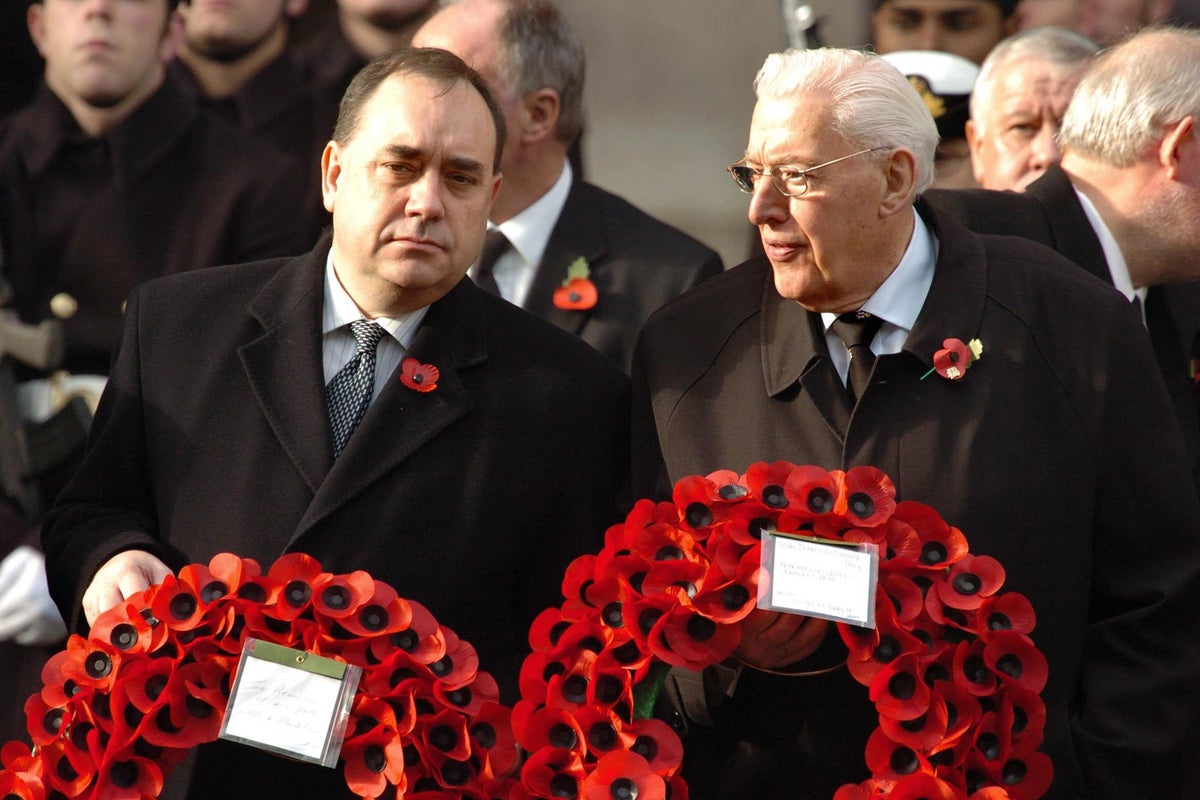Your support helps us to tell the story
From reproductive rights to climate change to Big Tech, The Independent is on the ground when the story is developing. Whether it’s investigating the financials of Elon Musk’s pro-Trump PAC or producing our latest documentary, ‘The A Word’, which shines a light on the American women fighting for reproductive rights, we know how important it is to parse out the facts from the messaging.
At such a critical moment in US history, we need reporters on the ground. Your donation allows us to keep sending journalists to speak to both sides of the story.
The Independent is trusted by Americans across the entire political spectrum. And unlike many other quality news outlets, we choose not to lock Americans out of our reporting and analysis with paywalls. We believe quality journalism should be available to everyone, paid for by those who can afford it.
Your support makes all the difference.Read more
Tony Blair’s government changed the rules on party leaders laying wreaths at the Cenotaph on Remembrance Sunday to protect the Northern Ireland peace process, according to newly-released official files.
Papers released by the National Archives show Northern Ireland secretary Paul Murphy said there were “pressing political reasons” why the leaders of both the main unionist parties, David Trimble and the Rev Ian Paisley, should be able to take part in the ceremony.
However other ministers warned of an “adverse reaction” from the SNP and Plaid Cymru, who were restricted to laying a single joint wreath.
Under rules drawn up in 1984, the leader of any party which secured six seats at the previous general election was entitled to lay a wreath during the ceremony led by the monarch.
After the 2001 general election that meant Mr Trimble, whose Ulster Unionist Party (UUP) secured six seats, could take part, but Mr Paisley, the leader of the Democratic Unionists (DUP) with five, could not.
But after Jeffrey Donaldson defected from the UUP to the DUP in 2003, the balance was reversed, and the DUP complained they were being treated unfairly compared with the UUP.
In the run up to the 2004 ceremony, Mr Murphy told the constitutional affairs secretary, Lord Falconer, there would be “real difficulties” if the 1984 formulation continued to apply to the Northern Ireland parties.
“We will undoubtedly face renewed pressure from the the DUP this year given that they are now not only the largest NI party but also have six Westminster MPs (and had done resoundingly well in the assembly and Euro elections),” he wrote.
“But we are now involved in intensive dialogue over the political future in Northern Ireland in which the DUP, and the UUP, are the key players. I fear, therefore, there are now pressing political reasons for amending the 1984 formulation.”
He suggested it could be tweaked so both parties which had six MPs at the last election, and those with subsequently passed that threshold through by-elections or defections, could take part.
Lord Falconer expressed concern that there was “a certain awkwardness” in the proposal, which involved overturning a clearly established formula.
“There is a further difficulty in the Scottish Nationalists, like the Official Unionists currently have five seats at Westminster. If Mr Trimble continues to lay a wreath, they might argue that they should be allowed to do so also,” he wrote.
“However, it is in fact Plaid Cymru’s turn to lay the wreath in 2004 on behalf of the joint parliamentary group. The result will be, apparently, that Northern Ireland lays two wreaths while Scotland lays none.”
Nevertheless, the plan was agreed by No 10.
